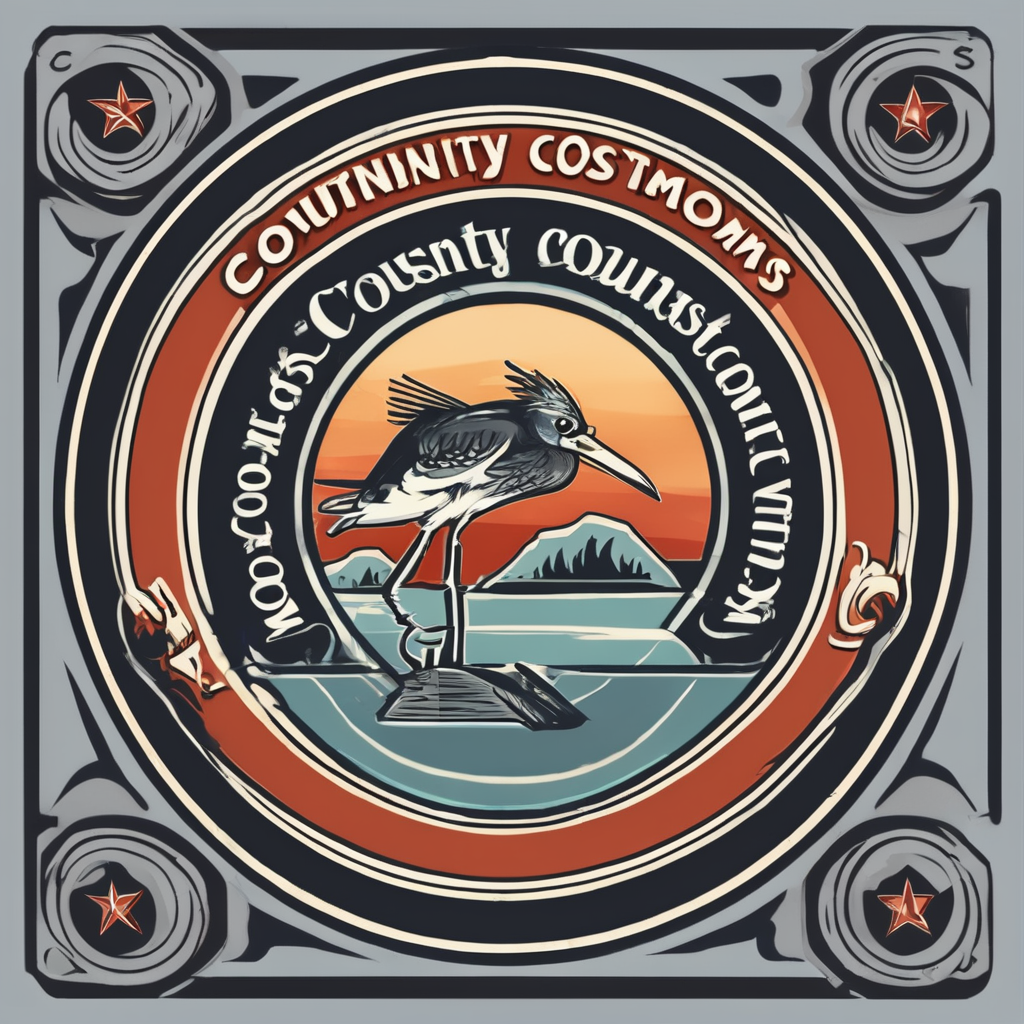Strategies for Implementing Sustainable Practices on UK Campsites
Adopting sustainable practices on UK campsites begins with integrating renewable energy sources such as solar panels and wind turbines. These reduce reliance on fossil fuels and lower greenhouse gas emissions. Water conservation measures, like rainwater harvesting and low-flow fixtures, are equally vital to minimize resource use without compromising guest comfort.
Using eco-friendly campsite facilities involves prioritizing biodegradable products for daily operations. Items like biodegradable soaps, cleaning agents, and utensils help reduce environmental pollution. Waste reduction techniques, including minimizing packaging and encouraging visitors to bring reusable items, further support sustainability efforts.
Topic to read : What are the best camping destinations in the UK for adventure seekers?
A key green tourism strategy is incorporating local biodiversity preservation into campsite management. This means enhancing natural habitats, protecting native flora and fauna, and avoiding landscape disruption. Campsites that maintain or restore surrounding ecosystems not only contribute to environmental health but also offer guests a richer, educational experience.
In conclusion, adopting renewable energy and water conservation, employing biodegradable products, and prioritizing local biodiversity are effective and complementary green tourism strategies that create eco-friendly campsite facilities, advancing sustainability on UK campsites.
Also to discover : What Unique Camping Spots Should You Visit in the UK?
Waste Management Solutions to Minimize Environmental Impact
Effective campsite waste management is essential for sustaining eco-friendly campsite facilities and advancing green tourism strategies. By implementing tailored recycling systems in campsites, operators can significantly reduce landfill contributions. Sorting waste into clear categories—plastics, glass, paper, and organic materials—makes recycling efficient and improves overall waste diversion rates.
Composting in tourism offers a practical way to handle organic waste onsite. Food scraps, garden trimmings, and biodegradable products can be converted into nutrient-rich compost, supporting local biodiversity and reducing waste transportation impacts. Composting not only lowers methane emissions but enriches soil, which benefits surrounding flora.
Reduction of single-use plastics directly addresses a major source of municipal waste. Campsites adopting reusable alternatives such as refillable water stations, washable cutlery, and durable containers align closely with sustainable practices on UK campsites. This shift encourages visitors to reduce their environmental footprint by minimizing disposable item consumption.
Collaboration with local waste services enhances disposal efficiency and compliance with regulations. Through partnerships, campsites gain access to specialized recycling and composting facilities, ensuring waste is processed sustainably. These combined measures create an effective waste management framework crucial to successful green tourism strategies.
Case Studies: Leading UK Campsites Exemplifying Sustainability
Examining UK sustainable campsite examples provides valuable insight into effective green tourism strategies. For instance, certain eco-friendly campsites have successfully integrated solar energy to power facilities, reducing carbon footprints and utility costs. These sites often combine renewable energy with water-saving technologies like rainwater capture, demonstrating comprehensive sustainable practices UK campsites can adopt.
Visitor satisfaction is notably higher at campsites that promote environmental stewardship alongside comfort. Detailed impact assessments reveal enhanced biodiversity and cleaner surroundings, which enrich guest experiences and foster environmental awareness. This dual benefit highlights how eco-friendly campsite facilities contribute to both conservation and tourism appeal.
Lessons from these eco-friendly campsites case studies include prioritizing local habitat preservation within campsite boundaries, encouraging native flora growth, and implementing clear waste recycling systems. Such approaches prove scalable and adaptable across various UK regions, emphasizing the practicality of holistic green tourism strategies.
By analyzing these UK sustainable campsite examples, operators can adopt tested innovations that balance environmental responsibility with economic viability, creating model campsites that inspire further sustainable development.
Economic and Environmental Benefits of Sustainable Tourism at Campsites
Sustainable practices on UK campsites deliver substantial benefits of sustainable tourism UK by supporting local biodiversity conservation and reducing environmental impact camping. Protecting natural habitats helps maintain ecosystem balance, enhancing flora and fauna diversity, which is vital for long-term environmental health. This directly contributes to greener surroundings that attract environmentally conscious tourists.
From an economic perspective, green tourism initiatives generate economic gains green tourism through eco-certifications and market differentiation. Campsites adopting sustainable measures often experience increased visitor numbers, appealing to travellers who prioritise eco-friendly destinations. This growing interest boosts local economies by creating jobs and fostering community development opportunities.
Furthermore, sustainable campsites achieve long-term cost savings via energy-efficient technologies and reduced resource consumption. This supports ongoing maintenance of eco-friendly campsite facilities without sacrificing guest comfort. By investing in renewable energy and water conservation, campsite operators not only lower operational expenses but also position themselves competitively in an evolving tourism market focused on sustainability.
Hence, the combined environmental and economic advantages underscore why embracing sustainable tourism is essential for the future growth and resilience of UK campsites.
Practical Tips for Campsite Operators to Enhance Sustainability
Enhancing sustainability on UK campsites requires clear sustainability tips campsite operators can apply immediately. Begin by adopting energy-efficient technologies such as LED lighting and smart water meters to optimise resource use within eco-friendly campsite management. These adjustments reduce operational costs while promoting green camping practices.
Educating staff is fundamental. Training teams on sustainable procedures ensures consistent implementation and fosters a culture of environmental responsibility. Equally important is engaging visitors through informative signage and interactive activities, helping them understand and support sustainability goals during their stay.
Implementing a monitoring system is another key recommendation. Regularly tracking energy and water consumption, waste generation, and recycling rates enables operators to identify improvement areas and measure progress over time. Transparent reporting not only demonstrates commitment but also motivates continuous eco-friendly campsite improvements.
Operators should also encourage simple actions like reusing towels and proper waste sorting, which collectively contribute to broader sustainable practices UK campsites need. By following these practical steps, campsite managers can effectively integrate green camping practices while enhancing visitor experience and safeguarding local ecosystems.
Waste Management Solutions to Minimize Environmental Impact
Effective campsite waste management is a cornerstone of green tourism strategies on UK campsites. Tailored recycling systems campsites implement play a critical role in separating plastics, glass, paper, and organics, boosting recycling rates. This precision ensures fewer materials end up in landfill, significantly reducing environmental harm.
Composting in tourism further complements waste reduction by converting food scraps and biodegradable waste onsite into nutrient-rich compost. This process decreases methane emissions from organic waste in landfills and supports local flora, reinforcing biodiversity preservation efforts.
Reducing single-use plastics is essential. Campsites adopting reusable alternatives like refillable water stations, washable utensils, and durable containers minimize plastic waste generation. This practical shift lessens environmental pollution while promoting responsible visitor behaviour.
Finally, collaboration with local waste services enhances sustainability by facilitating proper disposal and recycling of materials beyond campsite capabilities. Partnerships provide access to specialised facilities and ensure compliance with environmental regulations.
By combining effective recycling, composting programs, and strategic partnerships, campsites strengthen their waste management framework, reinforcing broader sustainable practices UK campsites must embrace to advance truly eco-friendly campsite facilities.
Current Trends and Statistics in UK Sustainable Tourism
Recent data on UK sustainability tourism trends show a robust increase in demand for eco-friendly travel experiences. More campers seek destinations that prioritize eco-friendly campsite facilities, reflecting a growing awareness of environmental impact and personal responsibility. This surge aligns closely with wider global interest in sustainable living and responsible tourism.
Government policies now actively support sustainable tourism development, offering incentives to encourage campsite operators to adopt green technologies. These measures form a key part of national efforts to meet climate goals while promoting economic growth within rural areas. Such backing facilitates wider implementation of green tourism strategies, including renewable energy use and comprehensive waste management systems.
Market analysis forecasts significant growth in the sustainable campsite sector, driven by both consumer preference and regulatory frameworks encouraging environmental stewardship. This trend is especially pronounced in regions with sensitive biodiversity, where conservation efforts coincide with tourism development. Campsites that integrate sustainable practices UK campsites value now serve as benchmarks for the expanding market, combining environmental benefits with visitor appeal.
In summary, evolving eco-friendly campsite facilities and targeted policy support underpin the positive trajectory of green tourism growth in the UK, making sustainability a core feature of the nation’s tourism future.




